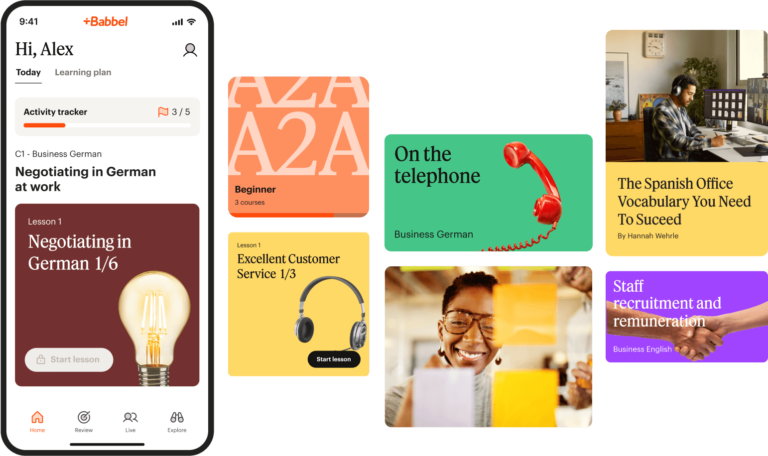Babbel for Business blog
At Babbel, we work hard on finding the best learning strategies, motivational tips and most useful tools, which we are happy to share here.

Featured posts
HR Management
Employee Development
Employee Development
Spoiler: moving to Spain won’t magically make you fluent. If you’ve ever tried to learn a new language, someone has...
Boosting efficiency is increasingly important in an interconnected world. The ability to speak multiple languages is becoming crucial for businesses....
You hear the phrase “future-proof your workforce” a lot in business circles. But what is an example of future proofing?...
Imagine hiring an employee who quietly increases team efficiency, strengthens customer relationships, and improves workplace inclusion—all without being asked. Chances...
Microlearning is a hot L&D trend for 2023. But what is microlearning and what are the benefits? What are some...
What are the main principles of a Teal organization? Learn all about this revolutionary approach to management here....
There are 3 key factors driving the war for talent. Learn about them here — and discover how to win...
This our fifth of five tips on effective language learning at work: This time, Babbel helps you on how to...
In times of social distancing and restrictions on personal contact, the significance of e-learning rose enormously. See here how it...
Strong communication is the foundation of a successful team and can be improved with simple changes from management....
Talent development boosts employee retention and helps to address skills gaps. But what exactly is talent development and how can...
Babbel Live is a great addition to our language learning platform: Your employees can join live video group lessons for...




















